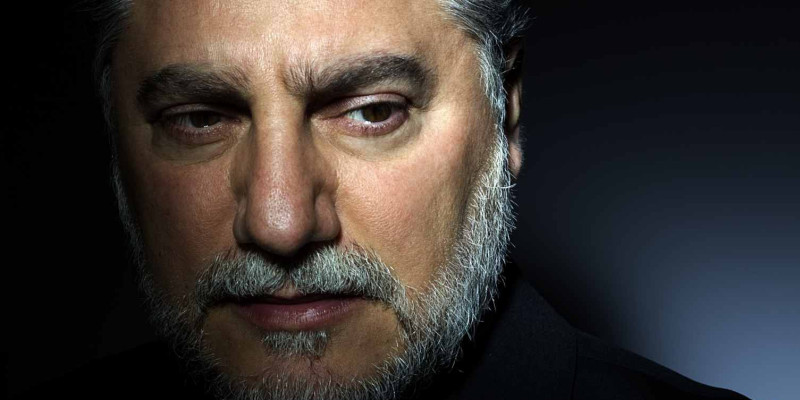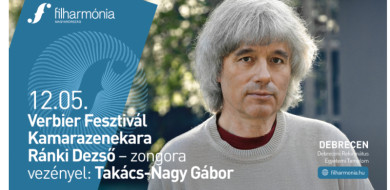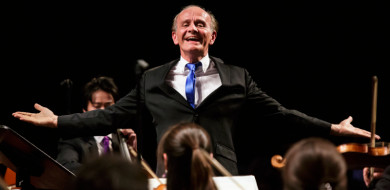Opera singer, conductor, composer José Cura, also known as the fourth tenor, will perform Puccini's opera The Swallow on September 7 and 9 at the Kodály Központ in Pécs. In connection with the performance within the framework of the program series Zeneszüret Fesztivál 2023, we talked with the maestro about, among other things, how he prepares to conduct a piece.
- How are you preparing for the upcoming premiere?
- The presentation of The Swallow in Pécs is a moment of operatic historical significance. This opera is rarely included in the repertoire, although it is special for several reasons. First of all, its music is great. It is easily accessible to everyone, so we can also appeal to that segment of the audience who are not used to listening to opera. And we can also win young people for the genre. In addition, this play has never been seen in Pécs, so those who will be there at the premiere will write themselves into the history books. Filharmonia plays an important role not only for Pécs, but also for the whole country. As a state institution, it is their responsibility not only to present well-known performers, but also to introduce the younger generation to the public. There are many young artists in this show, and we, the more mature generation, have a duty to pass on our knowledge to them. Filharmonia Hungary support this so we could fulfill our duty. Now it's the audience's turn to show their support and interest in the new generations, coming to the performance.
- What makes this Puccini work special?
- Those who come to listen to this wonderful music will be able to discover many interesting things. One of these is how closely The Swallow's music is connected to this Central European area. After all, in addition to the characteristics of Puccini's music, many features characteristic of Lehár and even a small Strauss influence can be discovered in it. Many waltzes and other musical elements typical of the operetta genre can be observed in these fascinating melodies, so Eastern European audiences can feel at home listening to the work.
- And what about you? Which is your favorite part?
- I like the first act the most, because it is almost revolutionary modern, it stands out from Puccini's oeuvre. In contrast to the massive first act typical of Tosca or Turandot, here we almost get a chamber music experience. The characters sing as they were sitting in their living room and talking to each other in the language of music. In this sense, it is strikingly similar to Strauss' Rosenkavalier, for example. But the story of the work also touched me. The main message of The Swallow is a paradox arising from the desire for freedom and the difficulty of separation. The title also refers to this, as this little bird sets off every year and then returns to its nest. This opera reflects that same loyalty. Magda, the protagonist, feels in a cage, longing to spread her wings and see the world. When all this is given to her, in the end she still returns to Rambaldo, she cannot be separated from him for a lot different reasons. Freedom and slavery, selfishness and love intermingle in this deeply human story.
- How do you prepare to conduct a work?
- When I start working on a new play, I first study the script. Only then do I study how the script relates to the music in the score. Of course, in the case of famous works, we already know both the music and the text, in which case I already have a step of advantage. However, it is not only important to understand the literal text, but also the underlying content. If I succeed, I start thinking about how I can convey that essence through the use of music and find ways to convey those meanings to the audience. How can I get people to talk about the show and think about what they saw not only that night, but also the next day, the next week? For me, that's the real success of a show and not just the applause of the moment.
- You are a singer, conductor, director, composer. A true polymath. Do the different fields of arts influence each other during the creative process?
- Surely. As a singer, for example, I strive to apply the attitude and skills I acquired as a conductor. And as a conductor, I encourage the musicians to phrase like singers do. There is no instrument that can express the subtle nuances of feeling like the human voice. If we manage to convey this essence to a band, that's magic.
- As a hobby, another branch of art, photography, is also part of your life. How do you choose the subject of your pictures?
- I started taking photographs mainly to study people to enrich my character’s inperpretation. This served my development as an actor, because I believe that someone becomes a good actor only if he has stories to tell, if he has rich life experience. That's why I always took my camera with me on my travels and tried to capture moments, faces and different situations. These studies helped a lot in shaping the characters. I didn't plan to make this material public, but a friend of mine showed my pictures to an editor without asking me, who, to my surprise, approached me one day saying they wanted to publish my photos. At first I hesitated because I thought no one would be interested, since I am not a professional photographer. But the publisher finally convinced me, saying, "You're an artist with a lot of followers who want to know how you see the world". So I finally agreed to publish the book.
- We just talked about younger generation. What advice would you have for them?
- It is difficult to give advice, because the world today has changed a lot compared to when I was young. I was not surrounded by so many technical devices, social media did not play such a big role in my life. These tools are incredibly useful, but only if we use them well. I would advise them to be very careful because social media nowadays makes it easy for people to become famous without really becoming great. Before going public, make sure you have something to say and that your performance is strong and valuable enough to stand the test of time. If they reach the stars too quickly, they can easily fall to the ground, which is often an unmanageable trauma. Many people struggle with alcohol problems, depression, and panic attacks because of this. It is sad that we lose many talented people because they do not give themselves enough time to develop their talents. Being a singer, conductor or director is like planting a seed. Talent is the seed, and craft is the tree it grows into. It takes time and consistent effort to grow from a tiny seed into a huge tree. It is no different in the human world.










